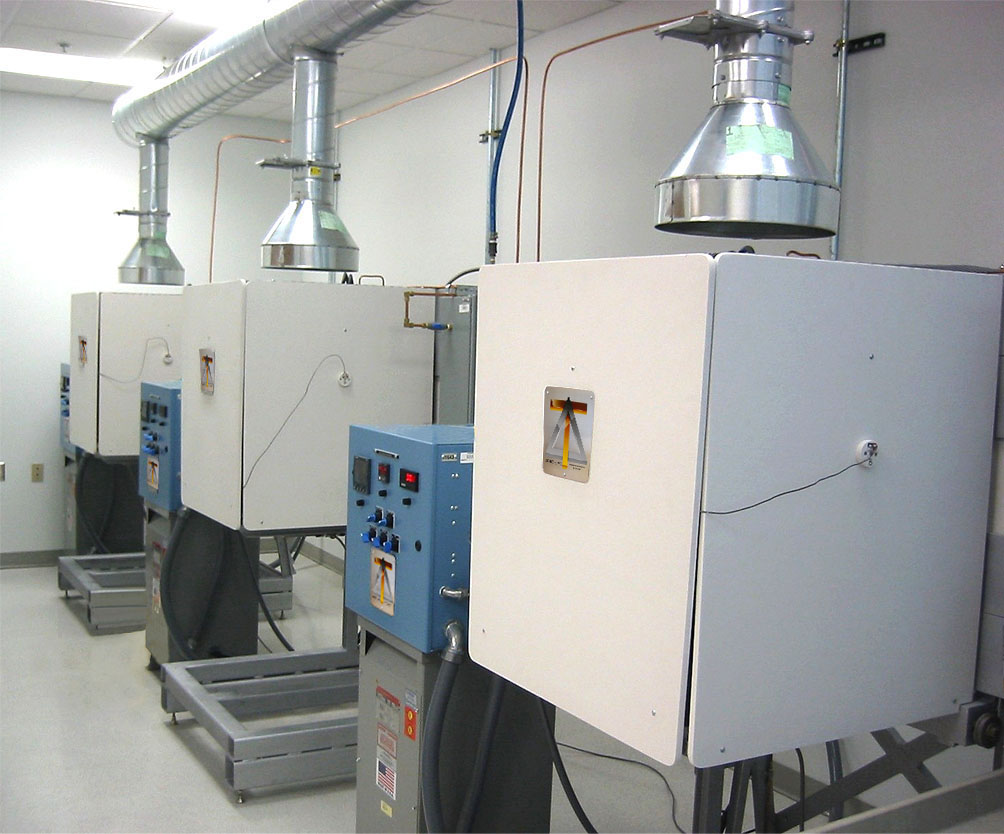
To sign up to receive our emails, fill in the following fields and hit submit. Thanks, and welcome!
"*" indicates required fields

To sign up to receive our emails, fill in the following fields and hit submit. Thanks, and welcome!
"*" indicates required fields

Many industrial processes require non-continuous heat treatment. Optimal treatment conditions are easier to recreate in closed systems such as non-continuous furnaces. Some industrial applications require inert or vacuum conditions to maintain impermeability.
Non-continuous furnaces are ideal for these applications because they are closed process machines. Non-continuous furnaces are best utilized for parts that are unique or difficult to cast.
These furnaces are less complex to operate and therefore have a lower investment threshold.

What is the difference between a non-continuous furnace and a continuous furnace?
Perhaps the best way to understand how a non-continuous furnace works is to contrast it with the operation of a continuous furnace.
Continuous furnace
A continuous treatment process works much like a factory’s production line. Treated parts are placed on a conveyor which moves at a speed determined by the production requirements. Alternatively, parts may be loaded in groups while the conveyor stops at regular intervals, allowing parts to rest intermittently as they transition through the furnace chamber.
Parts are treated sequentially, and the heat is distributed evenly. Heated parts may also be processed through a cooling chamber positioned after the furnace. The treatment process is shorter compared to a non-continuous furnace. Continuous furnace casting is best suited to high-volume throughput where treated parts are of a similar size and weight.
Non-continuous furnace
In a non-continuous furnace, parts are treated individually. Parts may also be batched in racks or baskets for processing. Thus, parts are removed from the production flow to prepare them for processing. When treated in batches, heating time is longer in a non-continuous furnace as heat does not reach individual parts equally. Cooling also takes longer. These limitations can be readily overcome by adding a forced air circulation feature to the furnace.
Treating parts in a non-continuous furnace trades throughput for flexibility, enabling manufacturers to cast multiple formulations according to customer requirements. A non-continuous furnace is typically used for smaller production runs when part size and weight vary.
What are the advantages of a non-continuous furnace?
For some applications, a non-continuous furnace provides the optimal balance between production rate, flexibility, and cost. A non-continuous furnace is less expensive to maintain and is well adapted to the inert atmosphere and clean room applications. Non-continuous furnaces come in many sizes, from small box-sized furnaces to car-bottom furnaces. They can be a stand-alone unit or combined with quench systems or atmosphere generation units. They can be heated electrically or through gas fire.
A bottom-loading non-continuous furnace has the advantage of handling loads without the use of specialist equipment, thus preserving the workspace.
A bottom-loading non-continuous furnace provides excellent temperature uniformity and energy efficiency. It is well suited to firing ceramics, melting glass, processing metals, and carbon materials. It is the ideal choice for reduction, calcination, sintering, application of coatings, and other applications.
Key Takeaway
Deltech non-continuous furnaces include bottom load and top hat models available in a range of benchtop and production sizes that operate at up to 18000C. They feature pneumatic (100 psi) or electric variable speed lift systems. Fiberboard, blanket, and ceramic insulation ensure operator safety while facilitating fan-less convection cooling. They operate in inert atmospheres or vacuums as required.
If you’re looking for an alternative to vacuum furnaces, Deltech ultra-high temperature furnaces can operate at 20000C in air. Ideal if you can’t reach your R&D goals without sustained operation at 20000C.

Deltech is a family owned small business incorporated in 1968. Members of the Stevenson family are part of the day-to-day operations in management, sales, engineering, and production.
Address:
Deltech Inc.
1007 East 75th Avenue, Unit E
Denver, CO 80229-6442 U.S.A.
© Copyright 1998 -2024 Deltech Furnaces
PRIVACY POLICY | SITE REQUIREMENTS | SITE MAP | INFO FOR EMPLOYEES
Our ongoing accessibility effort works towards being in line with the Web Content Accessibility Guidelines (WCAG) version 2.2, levels A and AA criteria. These guidelines not only help make web content accessible to users with sensory, cognitive, and mobility disabilities but ultimately to all users, regardless of ability.
This website is just part of a meaningful change in making all State of Colorado services inclusive and accessible. We welcome comments on how to improve this website’s accessibility for users with disabilities and for requests for accommodations to any State of Colorado services.